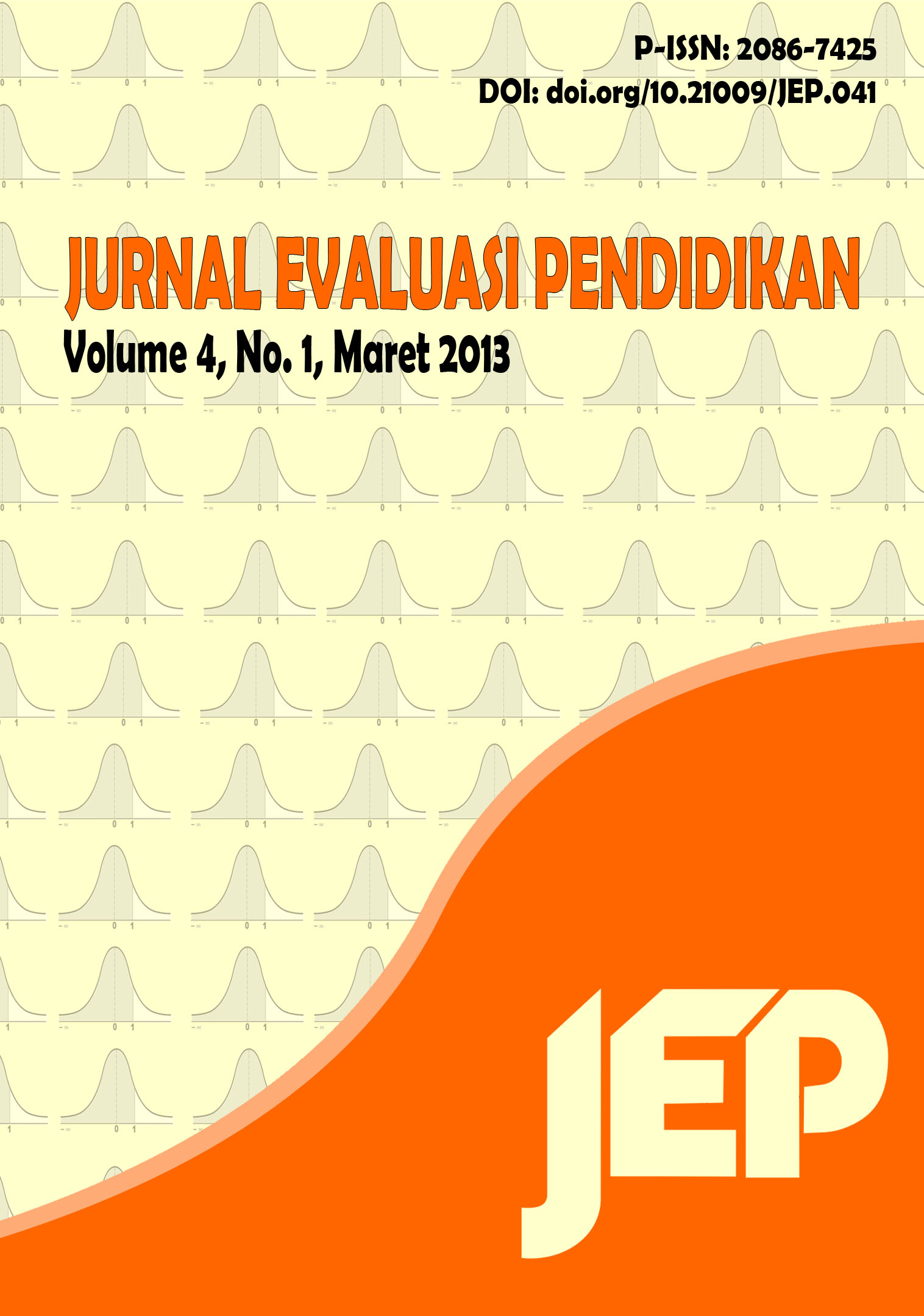THE FORMATIVE TEST FORM, TEACHERS’ QUALIFICATION, AND STUDENTS’ ACHIEVEMENT IN PHYSICS BY CONTROLLING THE STUDENTS’ PRIOR KNOWLEDGE
DOI:
https://doi.org/10.21009/JEP.041.04Keywords:
Formative Test Form, Teachers' Qualification, Students' Prior Knowledge, Physics AchievementAbstract
The purpose of this study is to determine the influence of the formative test form and the teachers’ qualification toward students’ achievement in Physics by controlling the students’ prior knowledge. Research sample is determined by Cluster Random Sampling technique and 12 students were chosen to be the samples. The research used experimental method of 2 x 2 design factorial and the data were analyzed by using Analysis of Covariant (ANCOVA). The results of research after controlling the students’ prior knowledge in Physics are as follow: 1) the students who were given essay test show higher achievement than those who were given the multiple choice test, 2) those who were taught by the S-1 degree teacher show higher achievement than those who were taught by the non S-1 degree teacher, 3) there is an interaction between test form and the teachers’ qualification, 4) the students who were given the essay test and taught by the S-1 teacher show higher achievement than those who were taught by the non S-1 teacher, 5) the students who were given the multiple choice test and taught by the S-1 teacher show lower achievement than those who were taught by non S-1 teacher, 6) the students who were taught by the S-1 teacher, the students’ achievement in essay test is higher than that of the multiple choice’s, and 7) the students who were taught by non S-1 teacher,the students’ achievement in essay test is lower than that of the multiple choice’s.








